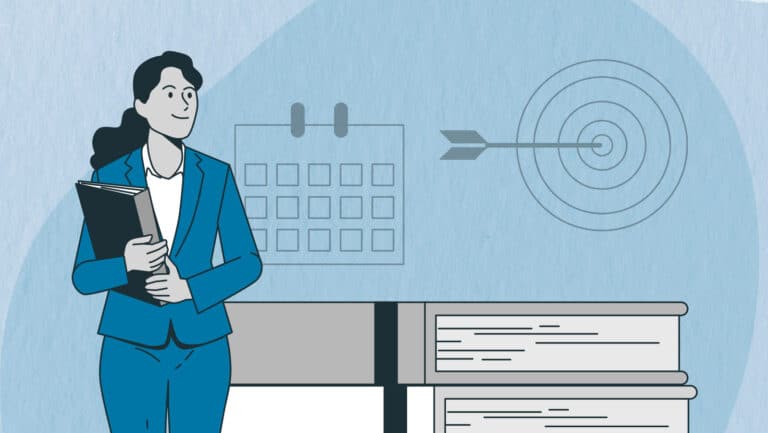RESOURCES ⇢ B2G
The Unspoken Truth About Winning Recompetes
In government contracting, winning isn’t always just about execution. Often, organizations can lose despite hitting every metric or milestone. Why?

the fallout:
“We delivered every milestone. We hit every metric. Our CPARS were steller. I don’t understand why you went with someone else?”
THEir reply:
“They understood our future needs better.“
Mark sat across from me, his coffee untouched.
He wasn’t accustomed to failure as a senior program manager with 15 years of experience and a wall full of certifications. I could feel his frustration as he described what happened.
“The customer smiled during our final review! Said we’d done fantastic work.”
“In fact, their exact words were, ‘couldn’t have asked for better execution.’ Yet we lost to a competitor who’d never worked with this agency?”

Mark’s experience isn’t unique.
Every day, highly competent PMs delivering stellar results are shocked to discover that technical excellence and on-time delivery aren’t enough to win the recompete.
THE CHALLENGE
The Intel Gap Costing You Contracts
In government contracting, winning isn’t just about execution, it’s about intelligence. And not just any intelligence, but the kind that never appears in RFPs or official communications.
The brutal truth is this: Your customer intelligence quality is directly proportional to your customer relationship quality.
And most program managers dramatically overestimate how strong their relationships are.
Consider these realities:
- A polite, cordial customer isn’t necessarily a trusting one.
- Meeting every deliverable doesn’t mean you understand their unstated priorities.
- Following PMBOK to the letter doesn’t reveal what’s frustrating your customer.

While you’re busy ensuring compliance with contractual requirements, your competitor is having coffee with your customer, learning about the budget pressures that will reshape next year’s requirements.

In fact, they’re vetting potential solutions with them long before you even get a chance to see the requirements. That’s a critical advantage that makes all the difference.
This overestimation of customer relationship quality is a very common problem.
RECOMMENDED GUIDE
We’ve lost count of how often we’ve received calls this year from shocked and disappointed executives who were completely blindsided by losing a recompete due to their program manager’s personality or lack of performance.
In most cases, they failed to recognize this because:
- The program manager was convinced the customer loved them,
- Leadership assumed they had a strong friendship with the customer, or
- Leadership assumed no complaints about the PM meant all was fine.
These assumptions can put recompetes at very high risk.
But here’s the good news: you can take preventative measures to protect your recompetes.

I learned so much that could be applied to all facets of relationships including with my government customer. Really enlightening and I highly recommend it for anyone in any role.
THE OPPORTUNITY
The Program Manager’s Role
You can leverage your PM’s access to protect your recompetes by building trust with the customer and getting new intel.
Your PM typically has incredible access and knowledge of the customer’s challenges and future needs.
But often they can be so focused on execution they miss larger opportunities to serve the customer.
Many PMs feel if they try to expand their current programs or discuss new opportunities with the customer, they may be perceived as “salespeople” and jeopardize their current relationships.
This is often due to a lack of BD and people skills training, which would allow them to be more skilled and comfortable having these types of conversations with customers.

I was a bit blindsided by this course in the best way possible. As a highly technical person, it put me out of my comfort zone and made me reevaluate all my relationships and interactions. You are guaranteed in the end to see things in a new light.”
In our research, we’ve identified 4 reasons PMs miss opportunities:
- Aversion to Business Development / Wrong Perception
- Lack of Customer Engagement Soft Skills
- Silo Culture / Customer Protective Mindset
- Incentives Not Aligned With Revenue Growth Responsibilities
Only 28% of government contractors provide formal training in areas like relationship building, emotional intelligence, and customer-centric selling.
Source: APMP Benchmarking Study
Often the difference between winning or losing a recompete is how a PM leverages their customer access, relationship quality, and communication skills to outthink, outsmart, and outmaneuver those who seek to replace them without getting caught in a race to the lowest price.
To fully leverage their position, PMs must embrace their pivotal role in business development and get new, actionable intel from stakeholders.

To do this, leadership needs to reframe their perception of business development so they understand they are serving the customer by solving additional challenges and provide them the necessary BD and people skills needed to create Winning Relationships™ without resorting to sleazy sales tactics.
With training and support, PMs can overcome common obstacles in the role and maximize their impact as playmakers driving revenue growth. And by tracking your Customer Relationship Score (CRS), you can prevent unexpected losses by monitoring the health of your federal relationships.
summary
Today we shared a critical aspect of government contracting where incumbent contractors often lose contract opportunities despite flawless execution, as illustrated by Mark, a seasoned program manager who lost a federal award despite stellar CPARS and customer praise.
The core issue is an intelligence gap. Many program managers overestimate their customer relationships, assuming cordial interactions and meeting deliverables are simply enough, while competitors gain an edge by understanding unstated future needs through proactive engagement.
Customer Relationship Score (CRS) is a competitive factor in winning potential recompetes, with 63% higher win rates for companies prioritizing these connections, according to an APMP Benchmarking Study.
The challenge stems from PMs’ focus on execution, often missing wider opportunities due to a lack of business development (BD) and customer engagement skills, compounded by silos, misaligned incentives, and a reluctance to be seen as a “pushy salesperson.”
Only 28% of government contractors offer formal training in relationship building or emotional intelligence, leaving Program Managers ill-equipped to leverage their access for additional planning or contract growth.
The opportunity lies in reframing PMs as trust-builders who gather actionable intel, with leadership providing BD training to enhance customer engagement, turning PMs into playmakers for business contracts and future opportunities across a wide range of contracting activity.
By investing in PMs’ skills, organizations can transform their approach, ensuring they outthink competitors and secure recompetes by fostering Winning Relationships® built on deep Customer Relationship Scores.

I can easily see a 10x return on this in the next 18 months!
FREQUENTLY ASKED QUESTIONS
what are the easiest government contracts to win?
The easiest government contracts to win are those where you have the strongest customer relationships across stakeholders, ensuring your solutions align with their specific problems and future needs. This is why customer alignment is critical.
At Hi-Q Group, we call these Winning Relationships®.
Building trust through consistent customer engagement, such as regular check-ins, understanding unstated priorities, and addressing pain points like operational inefficiencies is key.
Often teams believe there is a high mark of customer satisfaction due to lack of complains, but often customers will avoid unpleasant discussions, placing your contract recompete at risk. This is why winning teams go beyond the current contract, contract execution, or even contract success. They think beyond the contract lifecycle, always focused on the customer’s success and a continuous improvement of the customer relationship and stakeholder alignment.
For example, program managers who prioritize relationship building over the fundamentals of execution can gain a competitive edge by gathering actionable intelligence that shapes their proposals.
At Hi-Q Group, we recommend leveraging metrics like Customer Relationship Score (CRS) to measure and strengthen these connections, as companies with deep stakeholder relationships see a 63% higher win rate on government contracts, per the APMP Benchmarking Study.
This analytics approach to customer relationship management takes the guesswork out of programs at risk.
what does recompete mean in government contracting?
Recompete in government contracting refers to the process where an existing contract reaches the end of its term, and the government reopens it for bidding, allowing the incumbent contractor and new competitors to vie for the award.
It’s a critical opportunity to retain or win a contract, but success hinges on more than just past performance. Understanding the customer’s evolving needs and maintaining strong customer relationships are vital.
Incumbent contractors often lose recompetes due to overestimating their relationship quality, as competitors may better address future priorities through proactive engagement.
For more information on recompetes, be sure to check out our Recompete Glossary with definitions and terms you need to know to win federal government contracts.
are government contracts hard to win?
Yes, government contracts can be hard to win due to intense competition, strict compliance requirements, and the need for deep customer insights beyond what’s in RFPs.
However, they become more achievable with strong customer engagement practices—building trust with stakeholders, understanding their challenges like budget constraints, and aligning solutions with their strategic goals can set you apart.
For instance, Hi-Q Group emphasizes using Customer Relationship Scores (CRS) to measure stakeholder trust, helping contractors outmaneuver competitors by focusing on partnership quality, not just price or execution.
how to win the tender?
“Tender” is more commonly used in international or private-sector procurement, while “bid” or “proposal” is typical in U.S. government contracting.
To win a government contract bid, you must prioritize customer relationships and strategic intelligence over just meeting deliverables.
Engage stakeholders early, understand their pain points (e.g., operational inefficiencies), and tailor your proposal to their future needs using insights gained from trust-based interactions.
Hi-Q Group advocates for metrics like Customer Relationship Scores (CRS) to ensure your customer engagement drives a winning proposal, as strong relationships can boost win rates by 63%, per the APMP Benchmarking Study.










